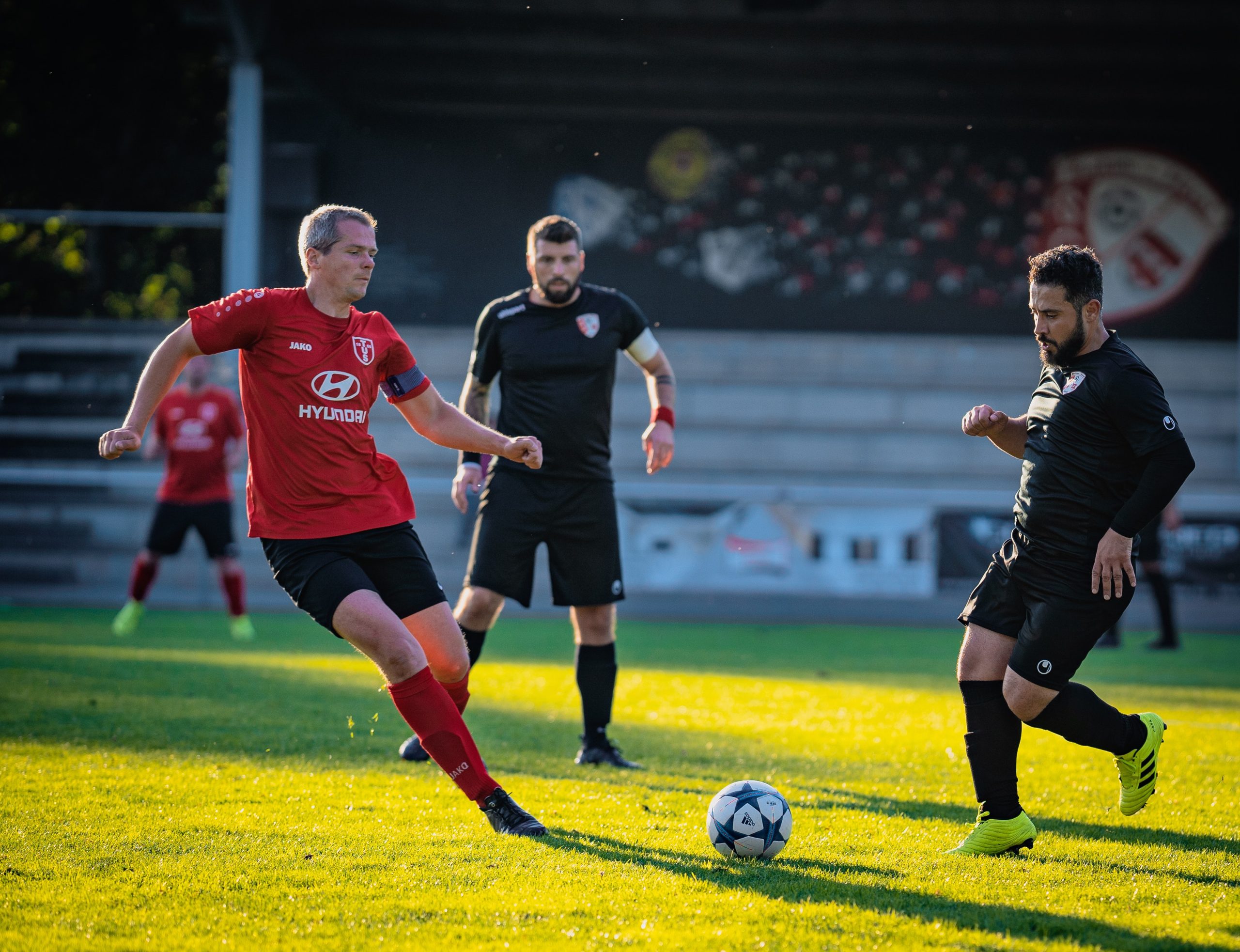If you’re an avid fan of soccer, chances are you’ve come across countless posts, videos, and discussions about the beautiful game on social media. From live match updates to player interviews, it seems like there’s no escaping the soccer frenzy online.
But have you ever stopped to think about whether there might be any downsides to this widespread presence of soccer on social media? While it’s undeniably exciting to have instant access to all things soccer, it’s worth exploring whether this constant exposure could have any negative effects.
1. Impact on Mental Health
Social media has become an integral part of our lives, providing us with a platform to connect, communicate, and share our thoughts and experiences. However, the increasing influence of social media in the soccer world has its downsides, particularly when it comes to mental health.
1.1 Cyberbullying and Harassment
One of the most concerning aspects of soccer’s presence on social media is the rise of cyberbullying and online harassment. Being an online platform, social media gives individuals a certain level of anonymity, which can embolden them to engage in hurtful and abusive behavior. Players, coaches, and even fans are susceptible to online abuse, with insults, threats, and derogatory comments becoming all too common. This cyberbullying and harassment can have a severe negative impact on the mental well-being of individuals involved in the soccer community.
1.2 Negative Body Image
Another detrimental impact of soccer’s presence on social media is the perpetuation of negative body image. Social media platforms are flooded with images of professional soccer players with chiseled physiques, setting unrealistic beauty standards for aspiring players and fans alike. This constant exposure to idealized and often photoshopped body types can lead to body dissatisfaction, low self-esteem, and even the development of eating disorders. The pressure to conform to these unrealistic standards can take a toll on the mental health of soccer enthusiasts.
1.3 Comparison and Self-Esteem Issues
In addition to negative body image, social media platforms can also contribute to comparison and self-esteem issues within the soccer community. With the ease of access to players’ and teams’ profiles, it becomes effortless for fans to compare their own achievements, skills, and success to those of their favorite players. This constant compulsion to measure up against the seemingly perfect lives and achievements of others can lead to feelings of inadequacy, envy, and a diminished sense of self-worth. This comparison culture on social media can have a detrimental impact on mental health, ultimately affecting individuals’ overall well-being.
2. Spread of Misinformation
While social media provides a platform for sharing information and news quickly, it also opens the floodgates for the spread of misinformation, particularly within the soccer community.
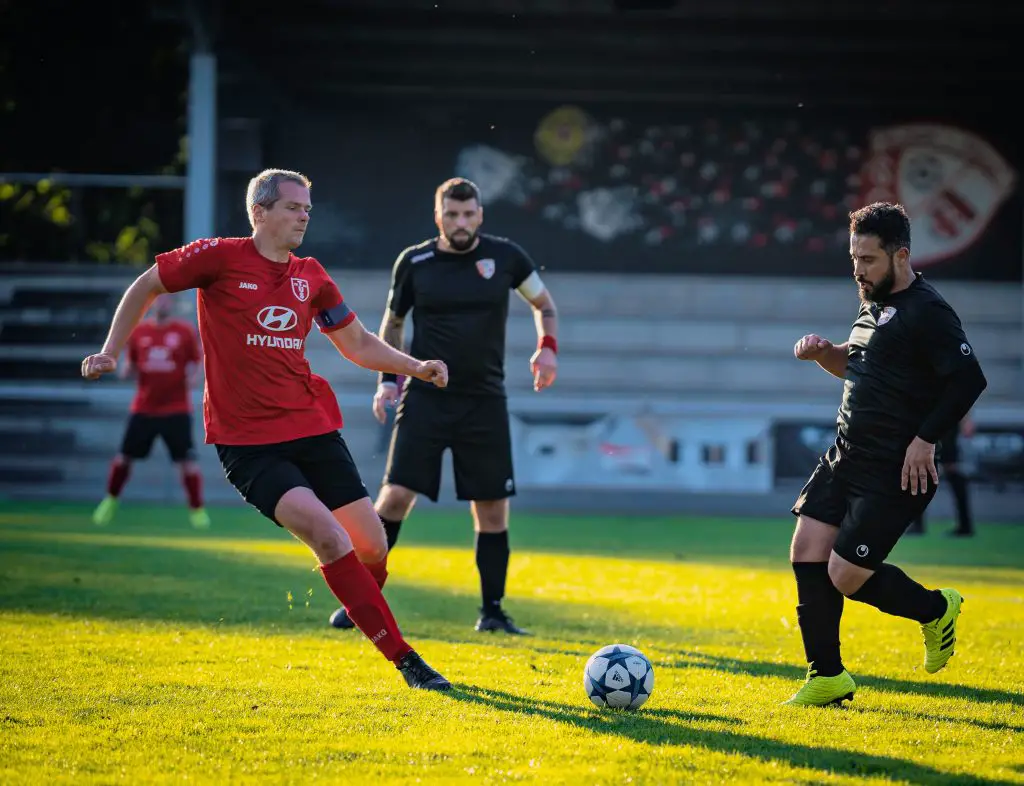
2.1 Fake News and Rumors
One of the downsides of soccer’s presence on social media is the proliferation of fake news and rumors. With the ability to share information at the click of a button, it becomes challenging to distinguish between accurate reporting and unsubstantiated claims. False rumors about player transfers, injury updates, or even fabricated news regarding clubs and teams can spread like wildfire, leading to confusion and misinformation among fans. This spread of fake news can not only damage the reputation of individuals and teams but can also create unnecessary anxiety and unrest within the soccer community.
2.2 Dissemination of Biased Information
Beyond fake news, social media can also be a breeding ground for the dissemination of biased information. With the ability to curate our online experiences, individuals often follow accounts that align with their own beliefs and biases, creating echo chambers of information. This can lead to the spread of one-sided narratives and biased opinions, distorting the truth and preventing a well-rounded understanding of soccer-related events. The perpetuation of biased information can harm the integrity of the sport and hinder open and balanced discussions among fans.
2.3 Lack of Fact-Checking
Furthermore, the fast-paced nature of social media often leads to a lack of fact-checking. In the quest for instant gratification and engagement, individuals and media outlets may prioritize speed over accuracy, leading to the spread of unchecked information. This lack of fact-checking can perpetuate rumors, heighten tensions, and erode the trust within the soccer community. Fans and enthusiasts are left vulnerable to inaccurate or misleading information, which can strain relationships and create a hostile online environment.
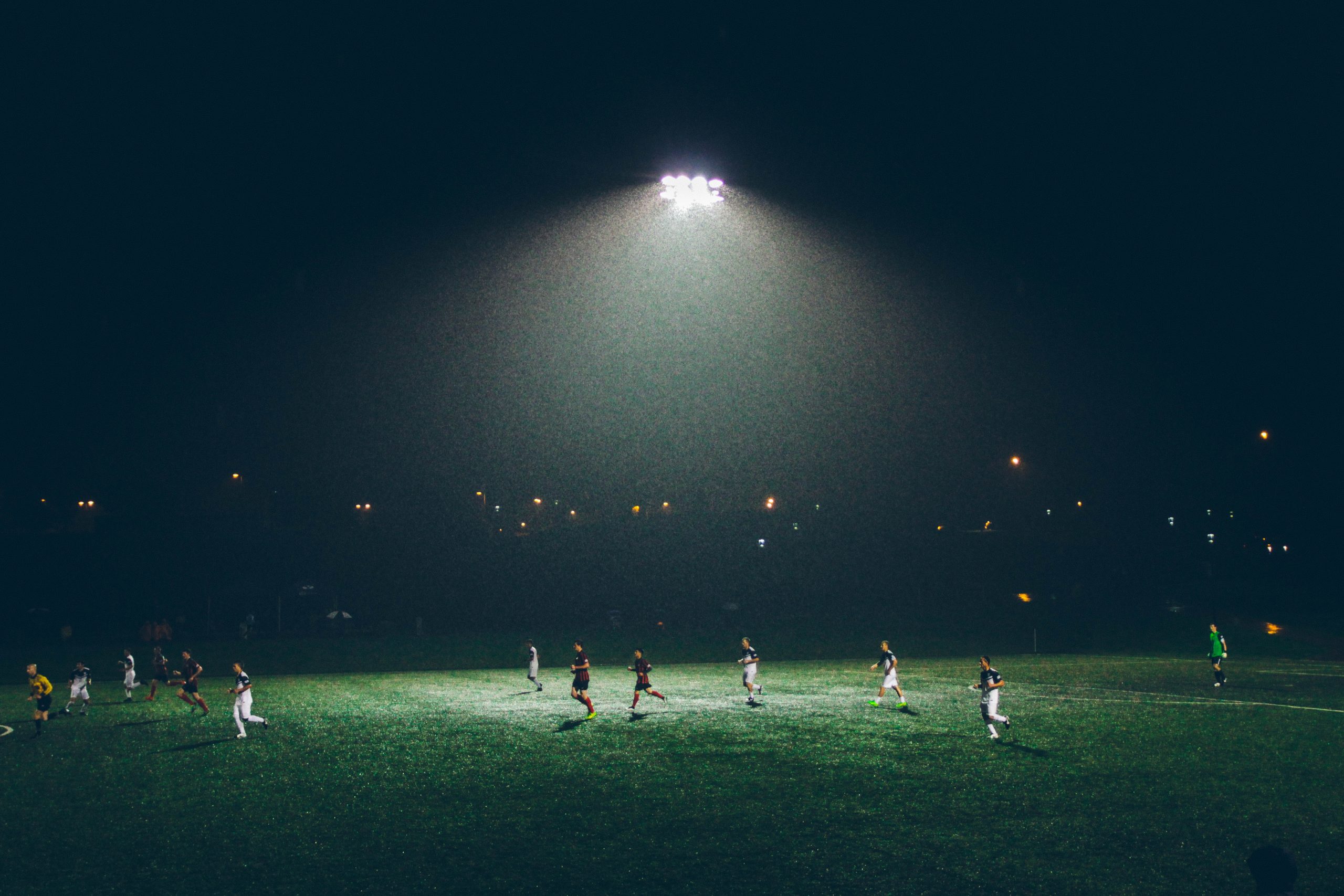
3. Privacy and Security Concerns
With the increasing involvement of social media in the world of soccer, there are growing concerns regarding privacy and security.
3.1 Data Breaches and Identity Theft
One significant issue is the potential for data breaches and identity theft. As fans and individuals engage with the soccer community on social media platforms, they often share personal information, such as names, addresses, and even banking details. Unfortunately, these platforms are not immune to hacking and cyberattacks, making users vulnerable to data breaches. The exposure of personal information can have severe consequences, including identity theft and financial loss. This threat to privacy and security raises concerns among soccer enthusiasts, impacting their willingness to fully engage online.
3.2 Online Scams and Phishing
In addition to data breaches, social media platforms can also become hotbeds for online scams and phishing attempts. The abundance of soccer-related content and discussions attracts the attention of scammers and fraudsters, who take advantage of fans’ passion and dedication. Phishing attempts, where cybercriminals pose as trusted sources to deceive victims into sharing sensitive information, become a prevalent issue within the soccer community. Unsuspecting fans may fall victim to these scams, leading to financial loss and compromised personal information.
3.3 Geolocation and Stalking Risks
Moreover, the use of social media can expose individuals to geolocation risks and potential stalking. Many fans excitedly share their location when attending matches, revealing their current whereabouts to both fellow fans and potential threats. This oversharing of location data can make individuals vulnerable to stalking, harassment, and, in extreme cases, physical harm. The desire to connect and document experiences can unintentionally put individuals at risk, undoubtedly impacting their mental well-being and overall sense of safety.
4. Distracted Fan Behavior
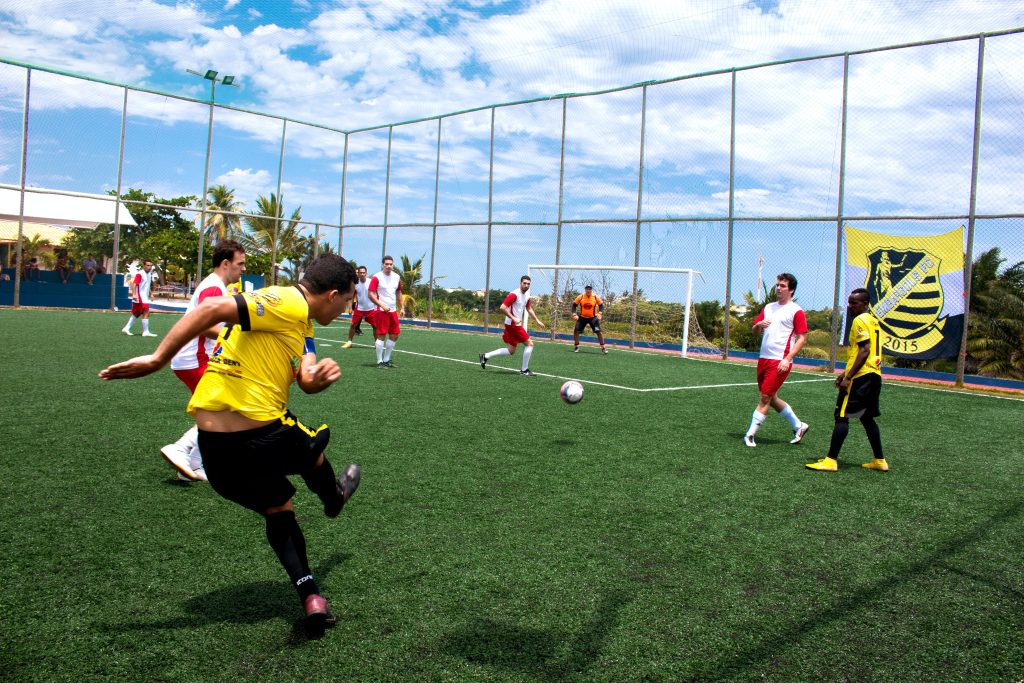
While social media provides a platform for fans to engage with soccer in real-time, it also leads to distracted behavior that can negatively impact the overall fan experience and safety.
4.1 Decreased Focus on Live Matches
One downside of soccer’s presence on social media is the potential decrease in focus on live matches. With the constant stream of updates, notifications, and social media conversations, fans may find themselves more engrossed in their screens, rather than fully immersing themselves in the live match experience. This distracted behavior can take away from the enjoyment of the sport, as fans may miss crucial moments on the field or fail to fully appreciate the atmosphere and camaraderie of being present in the stadium.
4.2 Disruption of In-Game Experience
Furthermore, the eagerness to share live experiences on social media can disrupt the in-game experience for both fans and players. Rather than being fully present in the moment, individuals may be preoccupied with capturing and posting photos or videos, checking social media feeds, and engaging in live discussions. This distraction not only detracts from individual enjoyment but can also create disruptions in the stands, potentially leading to tension and conflict among fans. Moreover, players may also find themselves distracted by the sea of smartphones and cameras, impacting their performance and focus on the game.
4.3 Increased Risk of Accidents
Lastly, the use of social media during live matches can contribute to increased risk of accidents. Whether it’s fans attempting to capture the perfect selfie or scrolling through social media feeds while navigating crowded stadium walkways, distracted behavior can lead to accidents and injuries. The over-reliance on social media and smartphones during matches can compromise personal safety and detract from the overall experience, posing a significant downside to soccer’s integration with social media platforms.

5. Negative Impact on Players and Teams
Soccer’s presence on social media can also have a detrimental impact on the mental well-being and performance of players and teams.
5.1 Trolling and Online Abuse
One concerning issue is the prevalence of trolling and online abuse directed towards players and teams. Social media platforms have given fans a direct line of communication with their favorite players, making it easier for them to express their opinions, both positive and negative. Unfortunately, this accessibility has led to a rise in online abuse, with players being subjected to hateful comments, threats, and personal attacks. This constant exposure to negativity can significantly affect the mental well-being of players, leading to decreased confidence, anxiety, and ultimately, reduced performance on the field.
5.2 Leaked Information and Strategy Compromise
Social media also poses a risk to teams and players by potentially compromising their strategies and confidential information. With the ability to share thoughts and opinions instantaneously, there is a higher likelihood of sensitive information being leaked, either intentionally or unintentionally. This leakage of confidential information can give rival teams a competitive advantage, diminishing the element of surprise and fair competition. The fear of leaked information may also hinder teams from adopting innovative tactics or trying new strategies, limiting the overall growth and development of the sport.
5.3 Increased Pressure and Performance Anxiety
Moreover, the constant presence and scrutiny on social media can intensify the pressure and anxiety experienced by players and teams. Every move, decision, or performance is subject to scrutiny and criticism from both fans and the media, amplifying the already significant pressures that come with professional soccer. This heightened pressure can lead to increased performance anxiety, affecting players’ mental state, confidence, and ultimately their overall performance on the field. The relentless nature of social media can create a toxic environment that takes away from the enjoyment and passion of the game.
6. Inequality and Commercialization
Soccer’s presence on social media has the potential to exacerbate existing inequalities and commercialization within the sport.

6.1 Limiting Exposure for Underrepresented Teams/Players
Social media algorithms and user preferences often favor well-established teams and popular players, resulting in limited exposure for underrepresented and lesser-known teams and players. This lack of visibility can perpetuate inequality, making it challenging for talented individuals and teams to gain recognition and support. The commercialized nature of social media platforms may prioritize profit-generating content, relegating underrepresented groups further into the background. This unequal distribution of exposure in the digital realm can hinder the growth and development of the sport, exacerbating existing disparities.
6.2 Financial Exploitation and Corruption
Additionally, the integration of social media in soccer can give rise to financial exploitation and corruption. The commercialization of the sport often leads to lucrative sponsorship deals, product endorsements, and various revenue-generating opportunities. However, the intense competition for these financial opportunities can create an environment prone to corruption, with unethical practices and monetary influences potentially compromising the integrity of the game. The pressure to maximize financial gains through social media may prioritize profit over fair play, negatively impacting the sport’s values and diminishing its authenticity.
6.3 Overemphasis on Popular Players and Clubs
Furthermore, social media’s influence on soccer can further reinforce the overemphasis on popular players and clubs. Platforms tend to highlight and amplify the voices and achievements of already well-established entities, perpetuating their dominance and overshadowing the accomplishments of lesser-known players and clubs. This overemphasis on popular figures can create a skewed representation of the sport, hindering the growth and recognition of emerging talent. It also limits the diversity of narratives and perspectives within the soccer community, preventing a more inclusive and egalitarian environment.

7. Intellectual Property Infringement
The widespread use of social media platforms in soccer also raises concerns regarding intellectual property infringement.
7.1 Unauthorized Sharing of Trademarked Content
One significant issue is the unauthorized sharing of trademarked content, such as logos, team names, and player images. Social media platforms offer ample opportunities for fans to share and discuss content related to their favorite teams and players. However, this freedom often leads to the unauthorized use and sharing of trademarked materials. This infringement on intellectual property rights can undermine the financial value of these trademarks and may impact the ability of clubs and organizations to protect their brand identity.
7.2 Piracy and Illegal Streaming
Moreover, social media platforms have become spaces for piracy and illegal streaming of soccer matches. With the rising popularity of live streaming platforms, unauthorized streams of matches may circulate, depriving clubs and leagues of legitimate revenue. These unauthorized streams not only violate intellectual property rights but also compromise the financial stability and sustainability of the sport. This unchecked piracy undermines the efforts of clubs, broadcasters, and content creators, dampening their ability to invest in the growth and development of soccer.
7.3 Challenges in Copyright Enforcement
Enforcing copyright protection in the digital age poses significant challenges. Social media platforms often struggle to effectively monitor and remove copyrighted content promptly. The sheer volume of content shared on these platforms makes it difficult to track and control intellectual property infringements. The lack of efficient copyright enforcement mechanisms can lead to an erosion of the value and exclusivity associated with trademarked materials, potentially impacting the financial viability and innovation within the soccer industry.
8. Addiction and Time Management
The ubiquitous nature of social media in our lives has brought forth concerns regarding addiction and time management within the soccer community.
8.1 Social Media Addiction
The constant scrolling, refreshing, and engagement with social media platforms can lead to addiction-like behaviors. This addiction not only consumes significant amounts of time but also promotes a sense of dependency on these platforms for information, connection, and validation. Within the soccer community, individuals may find themselves spending excessive hours on social media, neglecting other aspects of their lives and obligations. This addiction to social media can have a detrimental impact on mental health, relationships, and overall well-being.
8.2 Excessive Time Spent on Platforms
The lure of social media can cause individuals to spend excessive amounts of time on these platforms, detracting from productivity and personal growth. Instead of dedicating time to honing their skills, practicing, or engaging in other constructive activities, players and enthusiasts may find themselves getting lost in the vortex of social media. Excessive time spent on these platforms can hinder progress, impede personal and professional development, and ultimately stagnate the growth of individuals and the sport itself.
8.3 Neglecting Offline Relationships and Responsibilities
Lastly, the integration of social media in the soccer world can result in the neglect of offline relationships and responsibilities. Maintaining a healthy balance between online and offline interactions becomes increasingly challenging as social media becomes more prevalent. The constant need for engagement, sharing, and validation on social media can divert attention from real-life relationships, leading to isolation, strained connections, and even the neglect of personal and professional responsibilities. It is crucial for individuals to recognize the potential dangers of excessive social media use and prioritize their offline connections and commitments.
9. Unhealthy Sponsorship and Advertising
The marriage between social media and soccer has also given rise to unhealthy sponsorship and advertising practices.
9.1 Promotion of Unhealthy Products and Lifestyles
Sponsorship and advertising on social media platforms can promote unhealthy products and lifestyles within the soccer community. Brands often capitalize on the influence of soccer players and clubs to endorse products that may be detrimental to individuals’ well-being, such as sugary beverages, fast food, and excessive consumerism. These partnerships can inadvertently normalize and glamorize unhealthy behaviors, negatively influencing fans and young audiences who look up to these players as role models. The potential harm caused by the promotion of unhealthy products and lifestyles can have long-lasting consequences on both physical and mental health.
9.2 Manipulative Advertising Techniques
Furthermore, social media advertising techniques can be manipulative and exploitative of the soccer community. Advertisers often utilize sophisticated targeting algorithms to capture fans’ attention, personalize advertisements, and induce purchasing behavior. With the immersive nature of social media platforms, individuals may be more susceptible to impulse buying, false promises, and persuasive messaging. These manipulative advertising techniques can lead to financial strain, emotional distress, and dissatisfaction among consumers. The commercialization of soccer through social media can inadvertently create a breeding ground for unethical marketing practices.
9.3 Influence on Younger Audiences
Perhaps one of the most significant concerns is the influence of unhealthy sponsorship and advertising practices on younger audiences. Children and adolescents are particularly vulnerable to the messages conveyed through social media platforms, as they often idolize and emulate their favorite players and teams. Unhealthy sponsorships and advertising can shape their attitudes, beliefs, and behaviors, leading to the adoption of harmful practices, such as excessive consumption of unhealthy foods, gambling, or materialistic lifestyles. The lasting impact on younger audiences can contribute to the perpetuation of negative societal norms and have far-reaching consequences for their physical and mental well-being.
10. Cultural Appropriation and Insensitivity
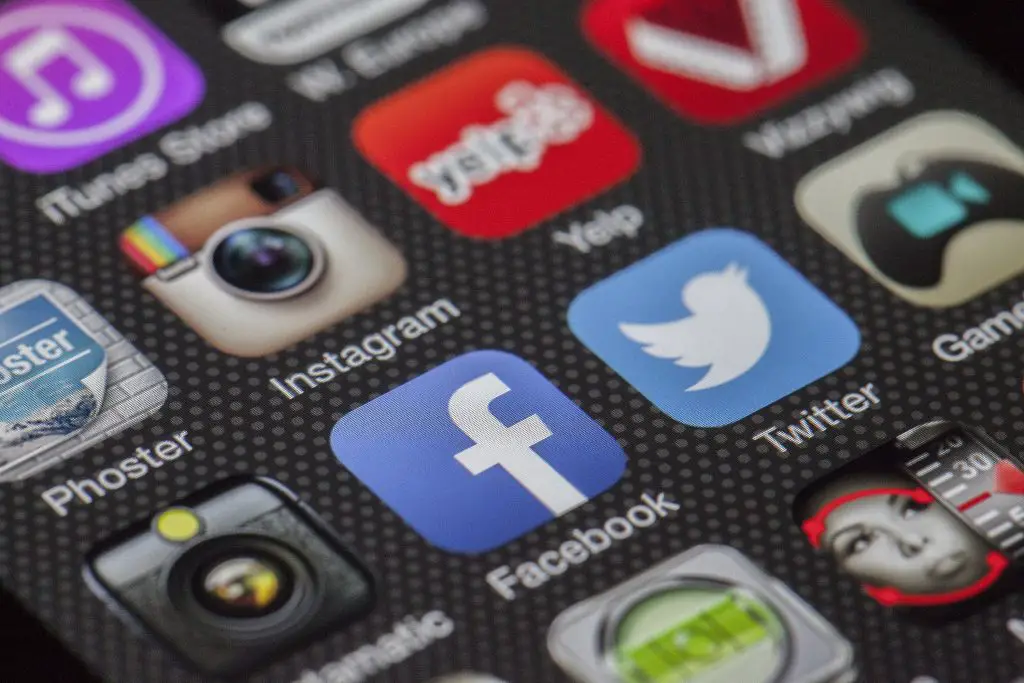
Lastly, the presence of soccer on social media can perpetuate cultural appropriation and insensitivity.
10.1 Misappropriation of Cultural Symbols and Practices
Social media platforms provide a stage for individuals and teams to express themselves creatively and share content related to their favorite sport. However, this freedom of expression sometimes leads to the misappropriation of cultural symbols and practices. Cultural appropriation, the adoption or borrowing of elements from a particular culture without proper understanding or respect, can be a significant concern within the soccer community. From offensive costumes to the use of sacred symbols and gestures without appropriate context, social media posts can perpetuate disrespect and insensitivity towards diverse cultures. This can lead to backlash, perpetuate stereotypes, and create an unsafe and unwelcoming environment for individuals from different backgrounds.
10.2 Insensitive Commentary and Memes
Additionally, the instantaneous nature of social media platforms can result in insensitive commentary and the creation of offensive memes. Conversations and debates about soccer often occur in real-time, with individuals expressing their opinions and perspectives passionately. However, this speed and lack of deliberation can lead to thoughtlessness, offensive remarks, and the spread of harmful memes. Insensitive commentary and memes not only insult and hurt individuals but can also contribute to a toxic environment within the soccer community, undermining the spirit of inclusivity and fair play.
10.3 Lack of Cultural Sensitivity Training
Lastly, the prevalence of cultural insensitivity within the soccer community on social media highlights the need for increased cultural sensitivity training. Players, fans, and organizations often lack the education and understanding necessary to navigate cultural differences and avoid offensive behavior. This lack of cultural sensitivity training exacerbates the perpetuation of offensive stereotypes, the misappropriation of cultural practices, and the creation of an unwelcoming environment. Implementing comprehensive cultural sensitivity training can promote inclusivity, respect, and a sense of belonging within the soccer community, fostering positive interactions and growth.
Conclusion
In Conclusion: The Double-Edged Sword of Soccer’s Social Media Dominance: For soccer enthusiasts, the ever-present nature of the sport on social media platforms provides an exhilarating, real-time engagement with all aspects of the game.
However, this constant immersion may not be without its drawbacks. While the benefits of immediate access to match updates, player interviews, and fan discussions are clear, it’s crucial to consider the potential negatives of such unrelenting exposure.
As we navigate the digital landscape of soccer fandom, it’s worth pausing to reflect on how our constant online engagement might be shaping not just our experience of the game, but also our broader lives and well-being.

